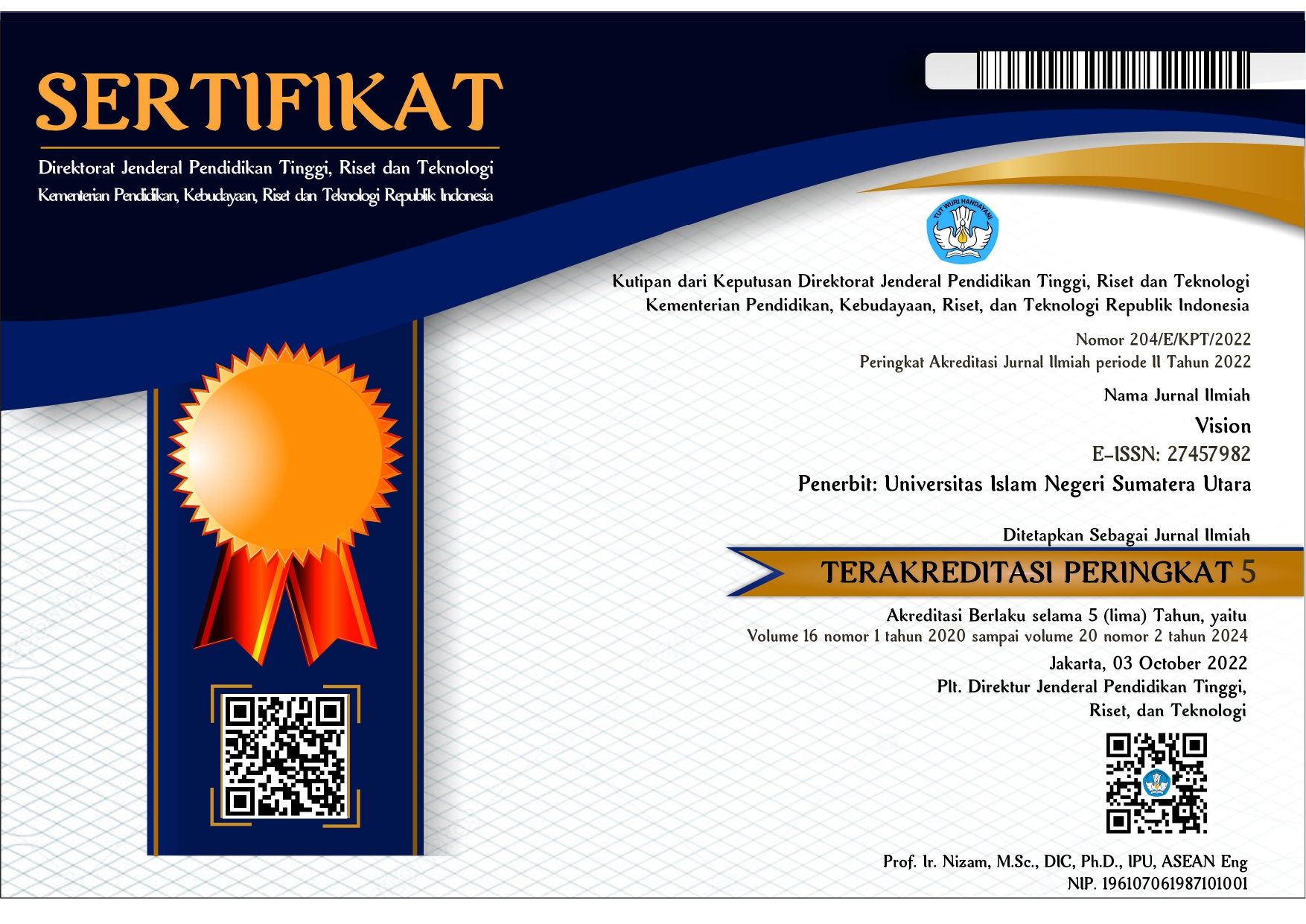AN ANALYSIS OF STUDENTS’ AND TEACHER’S PERCEPTION ON ENGLISH ONLINE LEARNING
Abstract
Full Text:
PDFReferences
Al-Okaily, M., Alqudah, H., Matar, A., Lutfi, A., & Taamneh, A. (2020). Dataset on the Acceptance of e-learning System among Universities Students' under the COVID-19 Pandemic Conditions. Data in brief, 32, 106176.
Dr, P. (2010). Sugiyono, Metode Penelitian Kuantitatif Kualitatif dan R&D. CV. Alfabeta, Bandung.
Haerazi, H., Irawan, L. A., Suadiyatno, T., & Hidayatullah, H. (2020). Triggering Preservice Teachers' Writing Skills through Genre-Based Instructional Model Viewed from Creativity. International Journal of Evaluation and Research in Education, 9(1), 234-244.
Jack Richards & Richard Schmidt. (2010). Longman Dictionary of Applied Linguistic. England: Longman House, Burnt Mill,Harlow.
Moore, J. L., Dickson-Deane, C., & Galyen, K. (2011). E-Learning, online learning, and distance learning environments: Are they the same?. The Internet and higher education, 14(2), 129-135.
Ngalomba, S.“Using Whatsapp to Enhace Online Learning”, University World News, https://www.universityworldnews.com/post.php?story=20200421102812987, accessed on 23rd April 2020.
Purwanto, A., Pramono, R., Asbari, M., Hyun, C. C., Wijayanti, L. M., & Putri, R. S. (2020). Studi eksploratif dampak pandemi COVID-19 terhadap proses pembelajaran online di sekolah dasar. EduPsyCouns: Journal of Education, Psychology and Counseling, 2(1),
DOI: http://dx.doi.org/10.30829/vis.v17i2.1146
Refbacks
- There are currently no refbacks.
Copyright (c) 2021 VISION
















